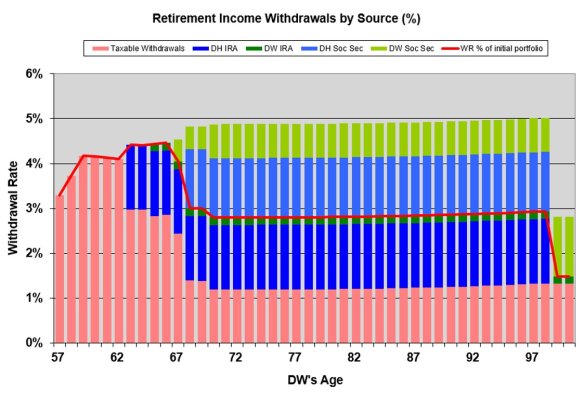ERD50
Give me a museum and I'll fill it. (Picasso) Give me a forum ...
The taxed twice part (actually two taxable events) would be caused by needing to turn around and sell some of the fund you recently reinvested in - due to rebalancing or withdrawal or both. .....
That's still not "being taxed twice" on the dividends (or I am very confused).
Sure, if I reinvest the dividends, and the investment has a gain when I sell, I pay tax on the gains (depending on my tax bracket, they may be a "0%" tax rate).
But it is irrelevant whether those shares were purchased with dividends or any other money. It appears you are conflating the two.
The dividends are taxed. Gains are taxed. Two independent events.
-ERD50

